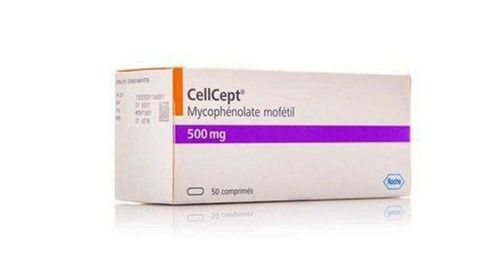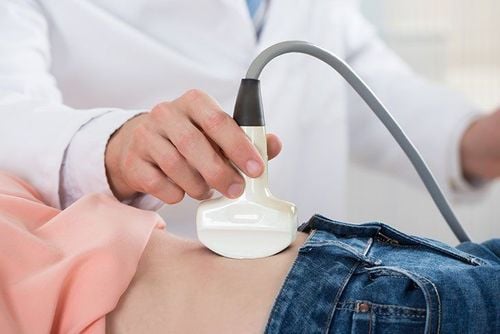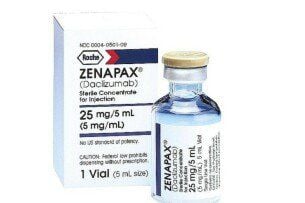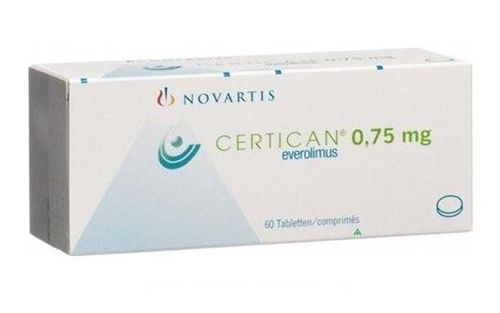This is an automatically translated article.
When a patient has end-stage chronic kidney disease, kidney transplant and replacement surgery is an almost mandatory medical intervention (except in cases where the patient is not healthy). However, kidney transplant treatment can leave many complications if there is no scientific care and handling.
1. Rejection after kidney transplant
Not only is a common complication after kidney transplant, this is also an important issue that is very concerned by doctors and patients. Renal transplant rejection is usually divided into two categories depending on the time, including acute rejection and chronic rejection.
According to doctors, rejection after a kidney transplant is a normal reaction after receiving a new kidney of the body, so patients need to take anti-rejection drugs as prescribed by the doctor and consider taking medicine as a treatment. daily routine. If the patient is forgetful, you should use additional alarm/reminder tools to ensure that medication is not delayed.
Besides, if you need to take another prescription to treat a certain medical condition, you should consult your doctor and present the individual's rejection status to make sure the prescription is not compatible. adverse effects with antirejection drugs. However, anti-rejection drugs increase the risk of infection, high blood pressure, or even cancer. Therefore, besides taking medicine, you also need to closely monitor your medical condition and seek medical attention as soon as there are abnormal signs in your body.
2. Infection after kidney transplant
Infection is a complication after kidney transplant that is related to anti-rejection drugs, because this drug can make the body's immune function impaired, leading to the growth of bacteria, viruses and many viruses. other harmful organisms. To prevent this complication, the simplest and most effective way is to keep the living space clean, especially to maintain a serious personal hygiene routine and wash your hands often. In addition, you should also avoid contact with people who are sick with flu, viral fever... In case you need to get vaccinated, please tell your doctor clearly before injecting, avoid injecting live vaccines with reduced levels. single force.
In addition, to avoid superinfection when vaccinating, you need to pay attention to some of the following issues:
Get vaccinated against hepatitis B virus before performing a kidney transplant. Live vaccines or flu vaccines should not be given by nasal route. Influenza vaccination should only be given at least 3 to 6 months after a kidney transplant and should be repeated every year. Some vaccines are recommended to cause no complications after kidney transplantation, with high safety, including: vaccines against diphtheria, tetanus, pertussis, hepatitis A, pneumococcal disease, and invalidated polio vaccine. Active, influenza A and B vaccines, typhoid and meningitis vaccines...
In addition, you also need to avoid certain groups of vaccines such as tuberculosis, chickenpox, nasal flu, typhoid type 1A according to oral, oral vaccine, vaccine for measles, rubella, mumps...

Duy trì thói quen vệ sinh cá nhân giúp phòng ngừa biến chứng sau ghép thận
3. NODAT - diabetes complications after kidney transplant
This is a complication that patients with diabetes may experience after a kidney transplant but did not have the disease before, usually related to the use of anti-rejection drugs. In particular, people with a lot of belly fat or a family history of the disease have a higher risk of NODAT. Care after kidney transplant also includes regular blood sugar monitoring to ensure good control of complications as soon as they appear by:
Adjust daily nutrition, cut down on starch consumption . Exercise regularly and regularly as prescribed by your doctor. Certain hypoglycemic drugs that do not interact with anti-rejection drugs may be recommended.
4. Cardiovascular complications after kidney transplant
Patients after a kidney transplant are more likely to have heart problems. In particular, the group of subjects with diabetes, overweight - obesity, high blood pressure, frequent smoking and dyslipidemia... are at greater risk.
Therefore, the care regimen after kidney transplant requires close monitoring of indicators such as blood pressure, blood fat,... and avoiding smoking. In addition, maintaining a healthy weight is necessary through physical activity, a healthy diet, and science.
4.1. Bone pathology Diseases associated with disorders of bone and mineral metabolism may persist after a patient has a kidney transplant. When that happens, the bones will become brittle, weak, and more likely to break. Some tests that will be conducted to limit this complication after kidney transplant are tests to check phosphorus, calcium, parathyroid hormone (PTH) and vitamin D levels in the body.
Besides, your living habits also need to be adjusted as follows:
Exercise in a regular and gentle state, you can walk, do yoga or run a bicycle. When vitamin D levels in the body are low, you should supplement this substance. Drugs that increase bone density are not recommended after kidney transplant surgery.
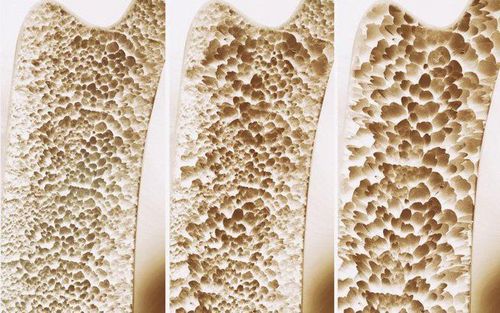
Biến chứng sau ghép thận có thể gây ra một số bệnh lý về xương
4.2. Mental complications after a kidney transplant After a kidney transplant, the most common psychiatric complications are anxiety and depression. This may be related to general health or may also be a side effect of anti-rejection medications. When the morale goes downhill in a too negative direction, you should consult a doctor for mental examination, and take the most appropriate adjustment and remedy measures.
4.3. Gout - complication after kidney transplant due to crystal deposition Gout is an elevated uric acid phenomenon that causes crystals to accumulate in the joints, leading to pain and swelling. After a kidney transplant, anti-rejection medications can cause uric acid levels to rise. To control this condition, you should adjust your diet, which limits red meats, soft drinks, alcohol and seafood. Also, keep your blood pressure and blood sugar under control, and maintain a healthy weight.
It can be said that kidney transplant surgery brings many dangerous long-term complications. Therefore, post-transplant care should be done carefully, thoughtfully and thoroughly.
In order to ensure the health of patients, Vinmec currently deploys a service of examination and monitoring after kidney transplant. With a system of world-class medical equipment and a team of leading doctors and professors. They are all leading experts in the field of organ transplantation, so they can deploy and implement synchronously transplant measures, follow-up after treatment to ensure that the patient can recover quickly and bring quality results. High quality of life, prolong life.
Therefore, customers after performing kidney transplant surgery can go to Vinmec International General Hospital for examination, monitoring, management and advice on the most appropriate nutrition.
Please dial HOTLINE for more information or register for an appointment HERE. Download MyVinmec app to make appointments faster and to manage your bookings easily.





